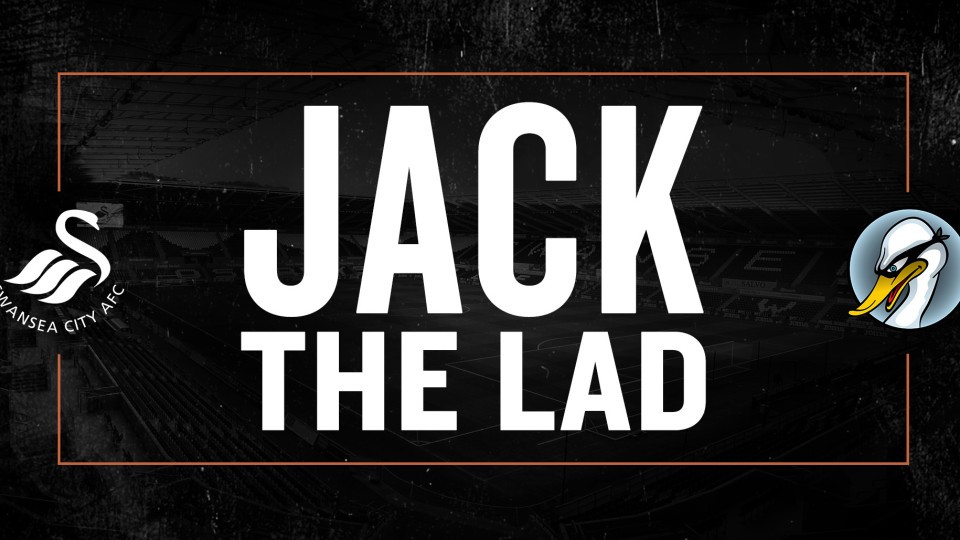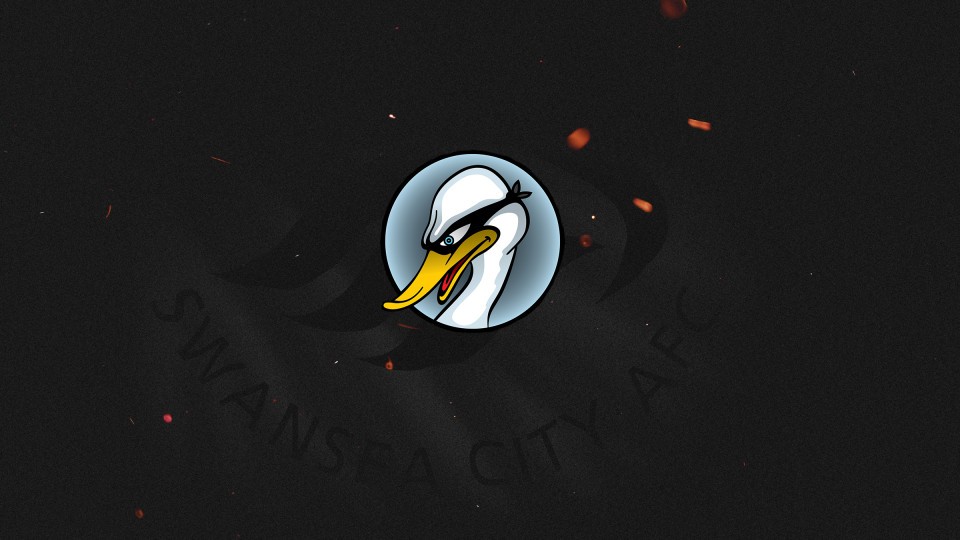Jack the Lad: Up for the cup? Oh yes
Loyal Swans supporter and website columnist Jack the Lad explains why he is very definitely up for the FA Cup.
I know the Swans have more pressing matters on their minds given their Premier League position, while Wolves are concentrating on their push for promotion.
But I can't help but get excited by this Saturday's FA Cup clash.
The magic of the cup may not be what it was for many, but it still conjures up a host of memorable moments for me.
When I was growing up in the 1970s and developing my early interest in football, the FA Cup final was just about the only domestic club football match televised live, so it was always a massive occasion whoever was playing.
And many of the matches on the way to Wembley were even more memorable than the finals themselves due to the drama they produced.
Particular memories which stand out for me are Ronnie Radford's rasper for lowly Hereford United as they humbled First Division giants Newcastle in 1972 and West Brom's John Wile playing on with his head swathed in blood-soaked bandages after a sickening clash of heads with Ipswich's Brian Talbot in the 1978 semi-final at Highbury.

Magic cup final moments include Charlie George's laid-back celebration after scoring Arsenal's dramatic extra-time winner against Liverpool in 1971 and Manchester United's thrilling late comeback from 2-0 down in the 1979 final, only to be beaten by an 89th-minute winner from Arsenal's Alan Sunderland.
The Swans may never have reached the FA Cup final, but they have been involved in many memorable matches over the years.
They achieved one of the first and arguably greatest giant killings.
Back in 1915, the Swans, then in Division Two of the Southern League and just three years into their history, qualified for the first round proper of the FA Cup after victories over Newport County, Port Vale and Leicester Fosse.
Their reward was the plum draw of the round – a home game against the reigning champions of England, Blackburn Rovers.
When the visitors arrived at the Vetch, they boasted four England internationals plus a former Scottish international and were lying second in the old First Division, having won the previous year’s title by seven points.
Swansea were a team of largely inexperienced professionals and their replacement centre-forward for the match was an amateur who had been playing rugby union for the town’s rugby club until just a few months earlier.

Ben Beynon had only swapped the oval ball for the round ball due to the suspension of amateur rugby union following the declaration of the First World War.
Professional football was continuing because players were expected to see out their contracts, and the league would be suspended the following season.
However, the former rugby-playing amateur was to become the most unlikely of heroes when he scored in the 20th minute of the cup tie played in front of a 16,000 crowd at the Vetch.
If the Swans faced an uphill task holding on to their lead, it became even steeper early in the second half when they were reduced to 10 men due to injury.
Their resistance appeared to be over when Rovers were awarded a penalty.
Forward stepped their spot-kick specialist Billy Bradshaw, who had netted his previous 36 attempts from 12 yards.
However, fate was on Swansea’s side and the master penalty-taker shot weakly wide.
With 10 minutes left, the Swans were reduced to just nine men when Harry Read left the field injured, but remarkably they hung on to win the match 1-0.

Although the Swans have never reached the final, they have twice reached the semis, in 1926 and most recently 1964 when they famously beat Liverpool at Anfield in the quarter-final.
Few gave the Swans, struggling for their lives at the bottom of Division Two, any chance of causing an upset against the First Division leaders, who went on to win the championship just months later.
But the Swans were 2–0 up at half time thanks to Jimmy McLaughlin and Eddie Thomas.
Liverpool turned up the pressure in the second half, pulling a goal back before being awarded a penalty nine minutes from time.
But the excellent Noel Dwyer saved Ronnie Moran's penalty to seal the Swans’ place in the semi-final where they were beaten 2-1 by Preston, despite going a goal up.
The first time I saw the Swans playing live in the FA Cup was back in 1978 when they played Hillingdon Borough in the first round at The Vetch.
Strangely, one of the things that sticks out most about my memory of that match is that Hillingdon played in the iconic 1970s Admiral kit, which was also worn by Wales and Coventry City – the one with the two stripes coming down the front of the shirts and the shorts.

Anyway, the important thing was it was a winning first FA Cup match for me as the Swans ran out 4-1 victors thanks to goals by Robbie James, Alan Waddle and two from Jeremy Charles.
Another favourite Swans FA Cup memory dates back to 1999, when the Swans – then playing in the fourth tier of English football – beat Premier League West Ham United, who boasted Rio Ferdinand, Joe Cole, Frank Lampard and John Hartson in their side.
Martin Thomas’ solitary goal meant Swansea were the first side from the bottom division to beat a Premier League side in the FA Cup since the league’s reorganisation in 1992.
The Swans, then in League One, also put out Premier League opposition in 2007, when they beat Sheffield United 3-0 at Bramall Lane, despite being without Lee Trundle and Andy Robinson.
Tom Butler scored twice while Leon Britton added another to secure a memorable cup success for the Swans.
Hopefully, it will be the Premier League side who come out on top at Molineux on Saturday and the Swans will earn the opportunity to add to my favourite FA Cup memories in this year’s competition.
Come on you Swans!

